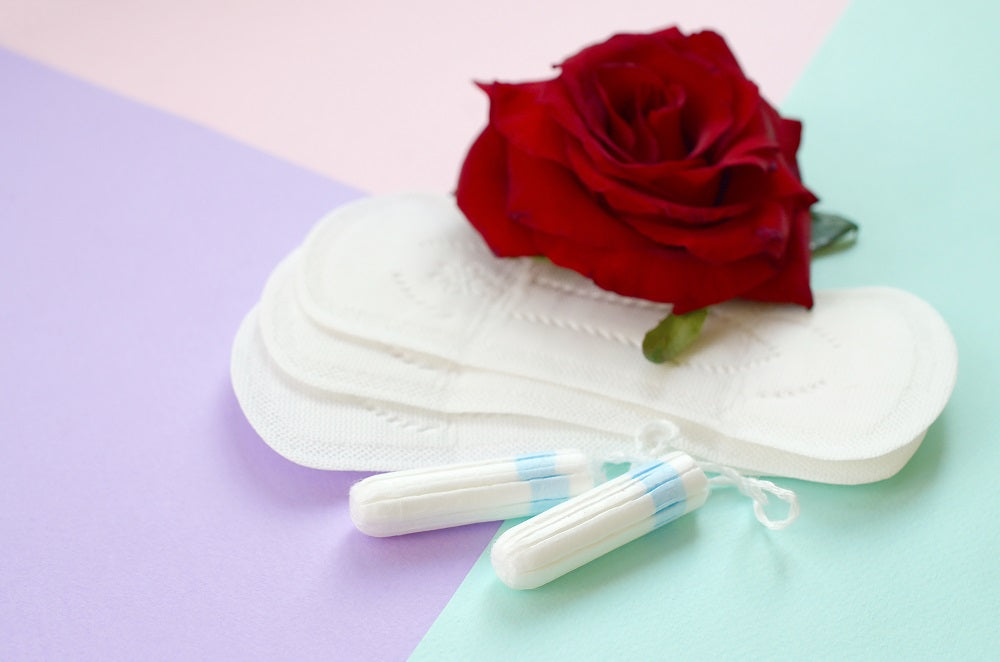Article: What to Do When Your Daughter Gets Her First Period: A Parent's Guide

What to Do When Your Daughter Gets Her First Period: A Parent's Guide
The moment your daughter tells you she’s gotten her first period is an important milestone for both of you. Menstruation can bring a mix of curiosity, nervousness, pride, or a bit of uncertainty—and all of these feelings are completely normal. For you, it’s a meaningful opportunity to simply be present, supportive, and reassuring. Your calm guidance can help her feel comfortable with this new stage of growing up. The following gentle, step-by-step approach can help you navigate this moment with warmth and confidence.
Key Takeaways:
Stay Calm & Reassure: Your reaction sets the tone. Comfort her and normalize this healthy process.
Provide Practical Help: Immediately offer supplies and show her how to use them. Calmly handle any stains.
Keep the Chat Simple: Use clear, simple language. Invite her questions and let her know you're always available to talk.
Offer Comfort: Address cramps or fatigue with a heating pad, rest, or a favorite treat.
Plan Ahead: Help her create a "period kit" for her backpack and learn to track her cycle.
1.Your First Reaction: Stay Calm and Validate Her Feelings
Your initial reaction will set the tone for how she perceives this milestone. If she's panicking (e.g., crying, hiding, or saying "I'm scared"), your first job is to de-escalate the stress, not jump into lessons or problem-solving. Start with simple, empathetic phrases that let her know her feelings are okay:
If she's scared or upset: Use calm, reassuring language.
- "It's okay, honey. I'm right here with you. This is a normal part of growing up."
- "I know this can feel surprising. Let's take a moment together."
- "You're not in trouble, and this is nothing to be ashamed of. It's just your body doing what it's supposed to do."
If she's excited or proud: Celebrate with her!
- "This is a big step! I'm so proud of the young woman you're becoming."
Avoid overreacting (e.g., gasping, saying "Already?!") or minimizing her feelings (e.g., "It's no big deal"). Even if you've talked about puberty before, the reality of her first period is different—and she needs to feel heard first.

Step 1: Provide Immediate Practical Help
Once she's calm enough to focus, offer concrete support to help her feel prepared in the moment. Keep this part simple and low-stakes—save detailed explanations for when she's more relaxed.
a. Grab the Right Supplies (and Teach Her the Basics)
If you've already prepared a "period kit" (as suggested in our earlier guide), grab it—this will feel reassuring. If not, gather clean pads (start with thin, regular-flow options—they're easier for beginners than tampons or menstrual cups) and panty liners. Sit with her (if she's comfortable) and walk her through the basics:
- How to remove the adhesive backing and attach the pad to her underwear.
- How often to change it (every 3–4 hours, or more if she notices it's full—emphasize that changing regularly keeps her clean and comfortable).
- Where to dispose of used pads (in a trash can with a lid, never flush them—this prevents clogs).
b. Help Her Clean Up
If she's gotten blood on her clothes or sheets, reassure her that this is completely normal—it happens to everyone. Offer to help treat the stain (a mix of cold water and mild soap works for fresh stains) or take care of it yourself if she's embarrassed. Say something like, "Don't worry about the clothes—I'll get that out for you. It's no big deal at all."
Step 2: Talk, Don't Lecture
After she's settled, she may have questions—and if she doesn't, it's okay to keep the conversation light and revisit it later. The goal here is to give her accurate, age-appropriate information without overwhelming her. Stick to the "need-to-know" basics first:
- What's happening?: "This is called a period. It's a sign that your body is healthy and growing exactly as it should. It means your uterus (or womb) is shedding a little bit of blood and tissue each month."
- How long will it last?: "First periods are usually lighter and shorter—maybe 3 to 7 days. They might be irregular at first too (like every 21 to 45 days) because your body is still getting used to it. That's normal for the first year or two."
- Will it hurt?: "Some girls get mild cramps in their tummy or lower back—if that happens, we can try a heating pad, a warm bath, or even a walk to help. If it hurts a lot, we'll talk to the doctor."
- What if something is "wrong"?: "Tell me if the bleeding is really heavy (like soaking through a pad every hour), if the cramps are unbearable, or if you have any other worries. We can always check with the pediatrician to make sure everything's okay."
Step 3: Tend to Her Body and Emotions—Small Gestures Go a Long Way
First periods can come with physical discomfort (cramps, fatigue) and emotional swings (irritability, sadness) thanks to hormonal shifts. Small, caring gestures can help her feel supported and loved:
- Offer comfort for cramps: Keep a heating pad handy, make her a warm drink (like herbal tea—avoid caffeine, which can worsen cramps), or suggest gentle stretches (e.g., child's pose) to ease tension.
- Let her rest: If she's tired, encourage her to take a nap or relax with a book/movie. Her body is going through a big change—rest is important.
- Normalize her feelings: If she's irritable or tearful, say, "I know your body is changing, and that can make you feel moody—that's totally okay. Want to talk about it, or do you want some space?" Avoid dismissing her emotions (e.g., "Don't be so dramatic")—this can make her feel ashamed.
- Celebrate (if she wants to): Some girls feel proud of this milestone—offer to get her a small "celebration" treat (e.g., her favorite snack, a new book) to mark the moment. If she'd rather keep it low-key, respect that too—this is her moment, not yours.
Step 4: Set Up "Long-Term" Support—Prepare for Future Cycles
The first period is just the start of her menstrual journey. Taking a few steps now can help her feel prepared for future cycles and build confidence in managing her body:
- Create an "emergency kit": Put together a small bag with pads, panty liners, and wipes for her backpack, locker, or purse. This way, she'll feel prepared if her period comes unexpectedly at school or with friends.
- Help her track her cycle: Use a simple calendar (paper or app like Clue or Flo) to note when her period starts and ends. This will help her predict future cycles (once they become regular) and avoid surprises.
- Talk about product options (when she's ready): Once she's comfortable with pads, you can talk about other options like tampons or menstrual cups—explain how they work, their pros and cons, and let her decide if she wants to try them. Never pressure her to use a product she's not comfortable with.
- Connect with a doctor (if needed): If her periods are extremely heavy, painful, or irregular for more than a year, schedule a visit with her pediatrician or an adolescent health specialist. This can rule out any underlying issues and give her (and you) peace of mind.
Browse our Aiwina sanitary pads>>>
Remember: Every girl's experience is different.
Some may be excited, some may be scared, some may be indifferent—and all of these are okay. Your job isn't to "fix" anything; it's to be a steady, non-judgmental presence who lets her know she's not alone.
At the end of the day, how you respond to her first period sends a powerful message: Your body is normal, your feelings are valid, and I am here for you. By focusing on empathy, practical help, and open communication, you'll help her build a healthy, positive relationship with her menstrual cycle—and with you.

